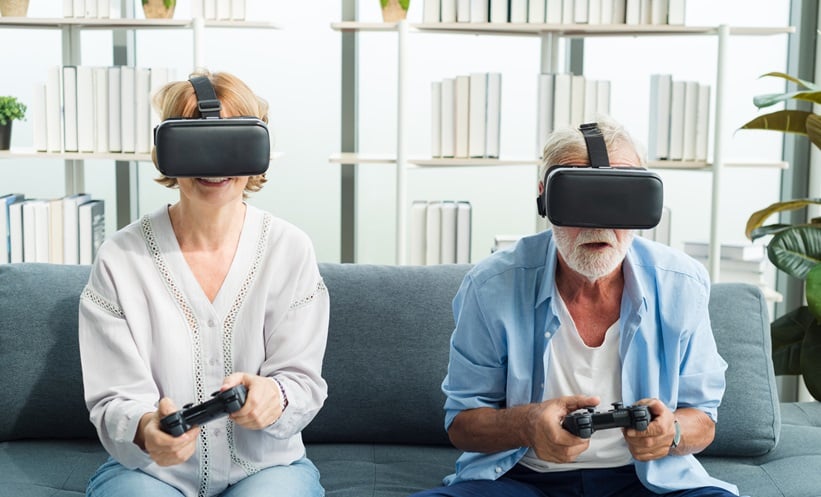GAME-BASED training designed for cognitive and physical engagement has been shown to slow memory loss and improve brain structure in older adults experiencing early signs of dementia, according to new research from ETH Zurich and Eastern Switzerland University of Applied Sciences OST. The impact was visible after only three months, with improvements in real-world memory tasks and positive changes in brain regions associated with cognition.
Dementia affects nearly one in ten Europeans over the age of 70, and with life expectancy rising, the number of cases is forecast to increase significantly in coming decades. While medications for Alzheimer’s disease can offer limited benefits for select patients, they remain inaccessible for most and are not approved in many countries. In recent years, “exergames”, digital activities that combine physical movements with brain training, have emerged as promising alternatives or complementary approaches, offering low risk and easy accessibility for home use.
Researchers enrolled around 40 participants in two clinical studies, all of whom had mild cognitive impairment and were on average 73 years old. Participants trained at home, using interactive systems with screens and foot panels to complete tasks like memorising lists and making decisions by stepping in different directions. The regime involved sessions lasting about 25 minutes, five times a week, for twelve weeks. Cognitive tests performed before and after training showed statistically significant improvements in memory, attention and everyday functioning, with participants reporting increased self-assurance and mental clarity. MRI scans revealed measurable structural changes in the brain: increased volume in memory-related areas such as the hippocampus and thalamus, while controls who did not train saw the expected decline.
For clinical practice, these findings support the use of game-based exergame approaches for those showing initial signs of dementia, either as an adjunct or alternative to drug therapy. Tailored cognitive and physical activity can enhance both brain function and structure, suggesting possible disease-modifying effects when introduced early. Larger, longer studies will be needed to confirm long-term benefits and clarify how best to integrate this training into dementia care programmes.
Reference
Manser P et al. Effectiveness of an individualized exergame-based motor-cognitive training concept targeted to improve cognitive functioning in older adults with mild neurocognitive disorder: study protocol for a randomized controlled trial. JMIR research protocols. 2023;12(1):e41173.








